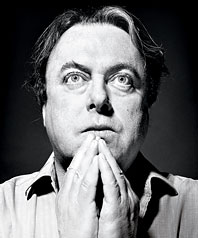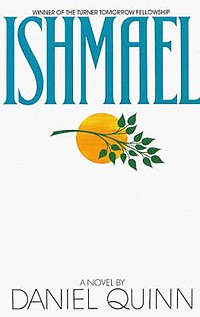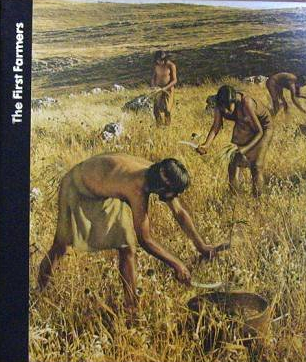To no one's surprise, Musk's plan garnered criticism, cynicism, and outright hatred from those who shroud themselves in pragmatism and an immutable love for incremental change. USA Today says "it won't work". TIME went way out on a limb and came up with "4 reasons why it could tank". Even usually friendly voices like The Atlantic's Alexis Madrigal wrote in his column that he"worr[ies] that more fully baked transportation projects might be put on hold" and that the Hyperloop "could serve as a poison dart for California's high-speed rail (CA HSR), and then nothing comes of it". It's nice that Alexis is worried, but nobody's asking him to do anything. I wonder if he worries about the proposed high speed railway? What if budgets run over, residents protest, and politics create roadblocks. What if we are all telling our grandchildren stories about a magical rail that could have been while we fill our cars with $30/gal. gasoline? When we first started sending people to space, did anyone worry that it would distract our engineers from building faster prop planes, more practical rockets? I'm sure they did.
Even if the status quo project is successful, Musk claims the $70 billion CA HSR will be one of the most expensive and slowest bullet trains in the world, and it would only save about 90 minutes off the trip. Is that type of incremental savings worth the money and the political capital needed to pull it off? If we're going to go through all the trouble and expense, why not really push the boundaries of transportation? The Hyperloop's $6 billion budget estimate might be pie in the sky, but even if it costs 10-20 times more than estimates, it will be about as expensive as the CA HSR + overruns, but will be a quantum leap forward in public transportation ... the beginning of a new future for humanity. Wouldn't that be worth the risk?
The Hyperloop truly is the stuff of science fiction, but from the desk of Elon Musk, the man who brought us PayPal, SpaceX, Tesla and Solar City, it is more than just a pipe dream (pardon the pun), it is a genuine attempt at pushing humankind forward by great leaps and bounds. There is a sense of urgency coming from Musk. The Hyperloop is now part of what's seemingly become his life's purpose - to push mankind toward becoming what Soviet Astronomer Nikolai Kardashev called a Type II civilization - a Type I civilization uses all available resources on its home planet, Type II harnesses all the energy of its star, and Type III of its galaxy.* Thinking in terms of the Kardashev scale makes one realize that even with all the glory of our iPhones and Lasik eye surgeries, we still have a lot of growing up to do as a civilization. It seems Musk is one of only a handful of humans who realize how much work we really have in front of us.
While most of the world is waiting for the next Steve Jobs (some say it's Jack Dorsey) to create the next iCandi, in Musk there is a man who is every bit as visionary but who is working on a huge problem others seem to be missing. There is no doubt that Jobs was an entrepreneur of unparalleled accomplishment in democratizing computing and revolutionizing communications, but just maybe he did such a good job on communications and computing that it might be time to set our sites on another problem.
Even if the status quo project is successful, Musk claims the $70 billion CA HSR will be one of the most expensive and slowest bullet trains in the world, and it would only save about 90 minutes off the trip. Is that type of incremental savings worth the money and the political capital needed to pull it off? If we're going to go through all the trouble and expense, why not really push the boundaries of transportation? The Hyperloop's $6 billion budget estimate might be pie in the sky, but even if it costs 10-20 times more than estimates, it will be about as expensive as the CA HSR + overruns, but will be a quantum leap forward in public transportation ... the beginning of a new future for humanity. Wouldn't that be worth the risk?
The Hyperloop truly is the stuff of science fiction, but from the desk of Elon Musk, the man who brought us PayPal, SpaceX, Tesla and Solar City, it is more than just a pipe dream (pardon the pun), it is a genuine attempt at pushing humankind forward by great leaps and bounds. There is a sense of urgency coming from Musk. The Hyperloop is now part of what's seemingly become his life's purpose - to push mankind toward becoming what Soviet Astronomer Nikolai Kardashev called a Type II civilization - a Type I civilization uses all available resources on its home planet, Type II harnesses all the energy of its star, and Type III of its galaxy.* Thinking in terms of the Kardashev scale makes one realize that even with all the glory of our iPhones and Lasik eye surgeries, we still have a lot of growing up to do as a civilization. It seems Musk is one of only a handful of humans who realize how much work we really have in front of us.
While most of the world is waiting for the next Steve Jobs (some say it's Jack Dorsey) to create the next iCandi, in Musk there is a man who is every bit as visionary but who is working on a huge problem others seem to be missing. There is no doubt that Jobs was an entrepreneur of unparalleled accomplishment in democratizing computing and revolutionizing communications, but just maybe he did such a good job on communications and computing that it might be time to set our sites on another problem.
The Valley is replete with world class geniuses who spend all their intellectual might innovating new ways for people to interact with screens and connect and share information with each other, and there is no shortage of VCs willing to spur them on. But I can't help but to wonder whether this app economy is really advancing our civilization. If everything new and exciting happens inside a screened box, then aren't we pouring all our eggs into one basket in every which way. Software is nice, but reality is where we actually live our lives.
In some ways it seems that Elon Musk is the lone prospector on the transportation frontier. He set up camp in an old prospecting town called San Jose and he's discovered that the mountains are full of gold, so much so that he can't manage it all by himself, and he's screaming from the mountaintops for others to join him, but they don't heed the call. For now they're all too busy playing Candy Crush Saga to notice. All they have to do is look at their own commutes and they'll realize the need for innovation in the transportation space is very real.
We put a man on the moon in 1969, but your car and mine aren't much different from the one Neil Armstrong drove to Cape Canaveral that July. Each one of us has the power of a million Apollo 11 computers in our pockets, but if we're lucky our cars get only twice the mpg's as Neil's 67 Corvette, a car that wouldn't know an mpg if it bit it in the tailpipe. Think about that, from a baseline of not even trying, we've improved fuel economy by 2-3x over the span of 50 years. Isn't it time to do better? With carbon choking the atmosphere, millions of cars choking our expressways, and angry travelers choking TSA agents, it might be time for our greatest minds to put aside their iPhone apps and start working with Musk on the problem of transportation.
Musk has stated that he started SpaceX because a future where we're exploring space is just more inspiring than one where we're not. He started Tesla because "we still haven't solved transportation" and he started SolarCity to build the infrastructure to cleanly fuel his electric cars. Isn't a future where cars are clean and long distance travel is safe, cheap and supersonic something worth being excited about? The Hyperloop is a logical next step in Musk's transportation vision, but to hear him talk about it, it's as if he wished he didn't have to take this project on at all. In some ways, it might be that our lack of imagination has foisted this burden upon Musk, and he just can't brush it aside. It's too important.
For obvious reasons Musk is loathe to start another company. Already CEO of two companies and chairman of a third, he's a bit tapped out. He probably has his hands full launching satellites and building coast to coast electric charging stations for his Teslas. But he pulled all-nighters to put together his Hyperloop plan. He didn't need to do that. I'm sure he wouldn't have done anything about the Hyperloop if not for his intense disappointment in the proposed CA High Speed Rail. We are thinking too small for him, but also too small for ourselves. Musk hopes we will heed his call to action, and start thinking huge, but if he knows anything, it's that we're still going to need his help.
We put a man on the moon in 1969, but your car and mine aren't much different from the one Neil Armstrong drove to Cape Canaveral that July. Each one of us has the power of a million Apollo 11 computers in our pockets, but if we're lucky our cars get only twice the mpg's as Neil's 67 Corvette, a car that wouldn't know an mpg if it bit it in the tailpipe. Think about that, from a baseline of not even trying, we've improved fuel economy by 2-3x over the span of 50 years. Isn't it time to do better? With carbon choking the atmosphere, millions of cars choking our expressways, and angry travelers choking TSA agents, it might be time for our greatest minds to put aside their iPhone apps and start working with Musk on the problem of transportation.
Musk has stated that he started SpaceX because a future where we're exploring space is just more inspiring than one where we're not. He started Tesla because "we still haven't solved transportation" and he started SolarCity to build the infrastructure to cleanly fuel his electric cars. Isn't a future where cars are clean and long distance travel is safe, cheap and supersonic something worth being excited about? The Hyperloop is a logical next step in Musk's transportation vision, but to hear him talk about it, it's as if he wished he didn't have to take this project on at all. In some ways, it might be that our lack of imagination has foisted this burden upon Musk, and he just can't brush it aside. It's too important.
For obvious reasons Musk is loathe to start another company. Already CEO of two companies and chairman of a third, he's a bit tapped out. He probably has his hands full launching satellites and building coast to coast electric charging stations for his Teslas. But he pulled all-nighters to put together his Hyperloop plan. He didn't need to do that. I'm sure he wouldn't have done anything about the Hyperloop if not for his intense disappointment in the proposed CA High Speed Rail. We are thinking too small for him, but also too small for ourselves. Musk hopes we will heed his call to action, and start thinking huge, but if he knows anything, it's that we're still going to need his help.







